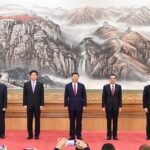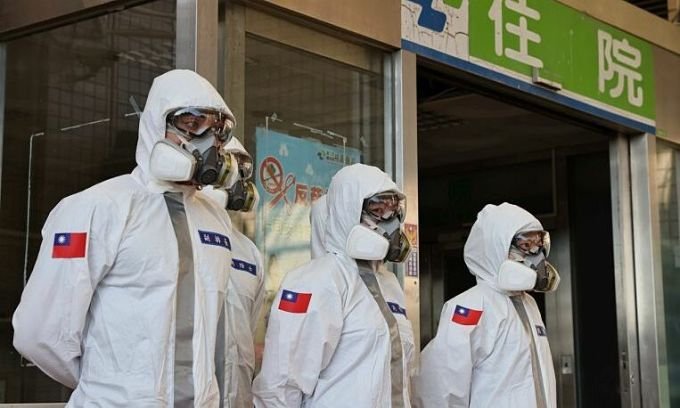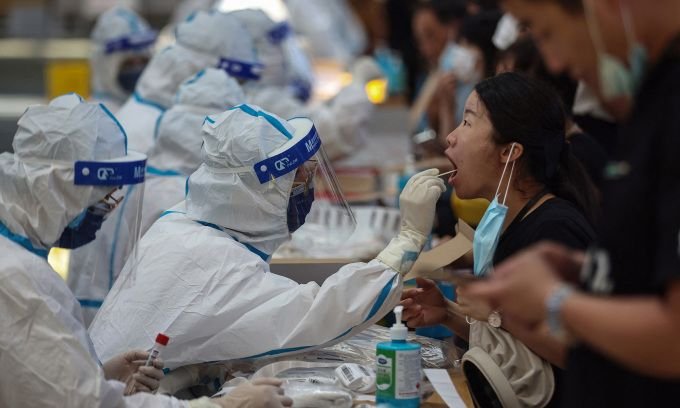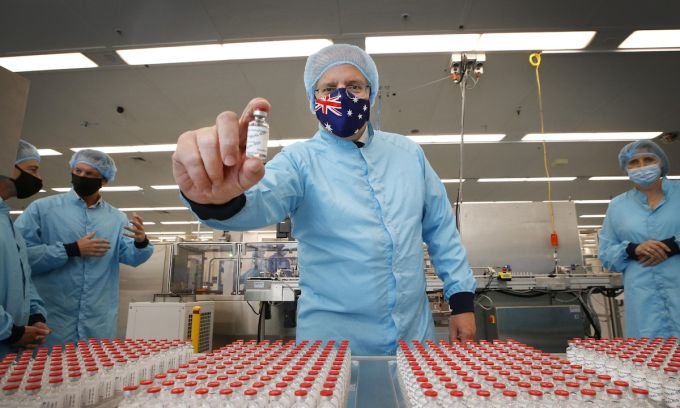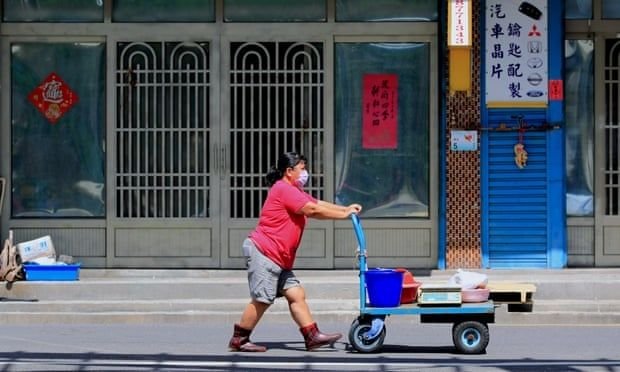On May 26, the Korean government announced that people who have received at least one Covid-19 vaccine shot can go to parks and streets without wearing a mask.
Strong measures will be maintained until the whole country reaches herd immunity, a goal that is considered quite far away for the fight against Covid-19 in the land of kimchi.
Similar difficulties are happening in Taiwan, which used to be a model for fighting the epidemic for the world.
Taiwanese soldiers prepare to spray disinfectant in front of Taoyuan City General Hospital on January 19.
The Japanese government also faces criticism for the delay in developing a domestic Covid-19 vaccine.
Tokyo, Taipei and Seoul all aim to produce vaccines as soon as possible to achieve three goals: controlling community infections, ensuring people are vaccinated annually and exporting vaccines abroad.
However, the ambition to develop a vaccine yourself is not easy.
`We spent the entire weekend working, trying to keep our promise to develop a Covid-19 vaccine. If we give up halfway, we will have no response plan in hand when a new pandemic appears.
Genexine is leading the vaccine development race in Korea.
In addition to Genexine, five Korean pharmaceutical companies have vaccines undergoing phase one and two clinical trials.
Taiwan has three companies developing home-grown Covid-19 vaccines, including Medigen Vaccine Biologics, United Biomedical and Adimmune.
Japan is developing vaccines more slowly than its neighbors.

Members of the Korean Olympic delegation were vaccinated against Covid-19 in Seoul on April 29, preparing for the competition trip to Japan.
Seoul, Tokyo and Taipei are all mobilizing resources to support domestic companies.
To improve vaccine development progress to catch up with its neighbors, the Japanese government has launched a support package of about 445.4 million USD for the research and production programs of 4 domestic companies.
Taiwan also took drastic steps.
Ahn Kwang-seog, a biology expert at Korea National University, emphasized that governments need to invest in infectious disease response with the same importance as the defense budget.

